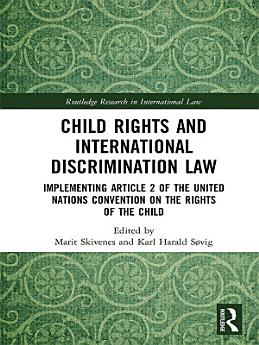Child Rights and International Discrimination Law: Implementing Article 2 of the United Nations Convention on the Rights of the Child
About this ebook
This book offers a comparative and critical analysis of the implementation of Article 2 of the United Nations Convention on the Rights of the Child. In order to examine how Article 2 is being implemented, it is essential to have a sound understanding of the obligations it emposes. The opening chapters will explore the precise content of these obligations in terms of the legislative history of the text, its underlying philosophy, its amplification by the United Nations Committee on the Rights of the Child, and subsequent authoritative interpretations of it by courts around the world. The book will then drill down into the conceptual and theoretical challenges posed by the very nature of the obligations and will offer in-depth exploration of the long-running ‘rights v welfare’ debate that has always presented something of a challenge in giving effect to children’s rights. Contributors are leading academics in the children’s rights field drawn from a wide range of countries and jurisdictions worldwide, including those with common law, civilian and mixed traditions. Disciplines represented in the book include law, psychology, political science, childhood studies, social work and anthropology.
By drawing together the various facets of Article 2 and analysing it from a range of perspectives, the volume provides a coherent and comprehensive inter-disciplinary analysis on discrimination and the rights of the child.
About the author
Marit Skivenes is a Professor at the Department for Administration and Organization Theory at the University of Bergen and the director of Centre for Research on Discretion and Paternalism, University of Bergen, Norway.
Karl Harald Søvig is a Professor of law and the Dean at the Faculty of Law at the University of Bergen, Norway.






